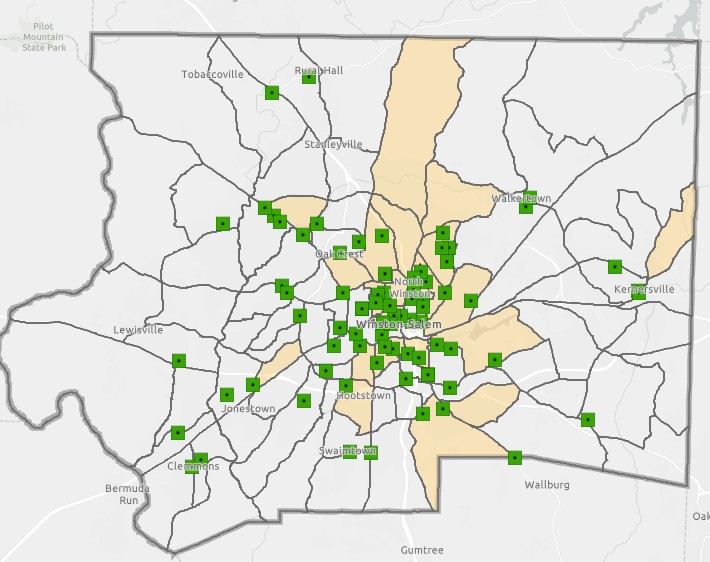Community Gardens
go.ncsu.edu/readext?823507
en Español / em Português
El inglés es el idioma de control de esta página. En la medida en que haya algún conflicto entre la traducción al inglés y la traducción, el inglés prevalece.
Al hacer clic en el enlace de traducción se activa un servicio de traducción gratuito para convertir la página al español. Al igual que con cualquier traducción por Internet, la conversión no es sensible al contexto y puede que no traduzca el texto en su significado original. NC State Extension no garantiza la exactitud del texto traducido. Por favor, tenga en cuenta que algunas aplicaciones y/o servicios pueden no funcionar como se espera cuando se traducen.
Português
Inglês é o idioma de controle desta página. Na medida que haja algum conflito entre o texto original em Inglês e a tradução, o Inglês prevalece.
Ao clicar no link de tradução, um serviço gratuito de tradução será ativado para converter a página para o Português. Como em qualquer tradução pela internet, a conversão não é sensivel ao contexto e pode não ocorrer a tradução para o significado orginal. O serviço de Extensão da Carolina do Norte (NC State Extension) não garante a exatidão do texto traduzido. Por favor, observe que algumas funções ou serviços podem não funcionar como esperado após a tradução.
English
English is the controlling language of this page. To the extent there is any conflict between the English text and the translation, English controls.
Clicking on the translation link activates a free translation service to convert the page to Spanish. As with any Internet translation, the conversion is not context-sensitive and may not translate the text to its original meaning. NC State Extension does not guarantee the accuracy of the translated text. Please note that some applications and/or services may not function as expected when translated.
Collapse ▲Community gardens come in all sizes and shapes, and are filled with a diversity of crops and gardeners alike. Community gardens play a valuable role in creating healthier communities by increasing community involvement and interaction between neighbors, providing fresh fruits and vegetables, and increasing opportunities for healthy outdoor physical activity. In their simple grassroots way, community gardens are making a growing contribution to the local food movement, to food security, and to food justice. Community gardens build relationships that last beyond the growing season. A community garden can help transform people who happen to live in the same place into a united community. It celebrates diversity in individual plots while creating opportunities for people to work together and learn from each other—about gardening, food preparation, and more. They learn to respect each others’ differences and to appreciate what they have in common.
Forsyth County Community Gardens
The Forsyth Community Gardening program mission is to support residents in establishing and sustaining community gardens, primarily by developing local leaders’ skills in community organizing and sustainable horticulture. By growing gardens and garden leaders, we seek to improve residents’ access to fresh produce and nutrition, enhance environmental quality, provide outdoor educational opportunities for all ages, and promote social well-being.
Our program supports the growing efforts of almost 90 community and school gardens. Check out the online map of community gardens to find one close to you!

Don’t see your garden? Fill out the Garden Directory Update form or contact the Community Gardening Program Coordinator.
Want to volunteer with an existing garden? Fill out the Volunteer Interest Form.
What is a community garden?
A community garden is any piece of land gardened by a group of people. Community gardens are as varied as the places in which they are located. They can be found at schools, parks, housing projects, places of worship, vacant lots, private properties, or anywhere there is open land and lots of sunlight. Each is developed to meet the needs of the people who come together to grow fruits, vegetables, flowers, herbs and other plants on common ground. A community garden can be any size or shape, ranging from just a few raised beds to two or three acres. (excerpt from “Eat Smart, Move More: Growing Communities through Gardens“)
Community Gardening Quick Links
- How to get involved
- How to start a community garden
- How Forsyth Cooperative Extension supports community gardens
- Horticulture resources
2021 Community Garden Needs & Capacity Inventory
Community Gardeners, please take a moment to fill out this 3-page 2021 Needs Assessment to share your current needs for programming and garden resources. This will help us serve you better in the coming year and tailor programming to meet community needs!
Community Gardening Questions
Please call our main office at 336-703-2850 if you need assistance.




